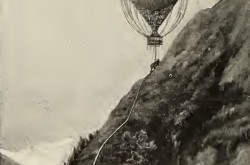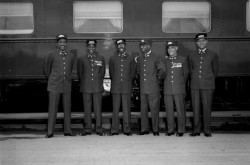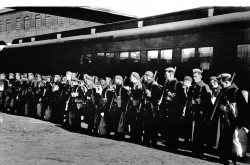Waterloop competed in SpaceX's Hyperloop Pod Challenge as the only Canadian team
This article was originally written and submitted as part of a Canada 150 Project, the Innovation Storybook, to crowdsource stories of Canadian innovation with partners across Canada. The content has since been migrated to Ingenium’s Channel, a digital hub featuring curated content related to science, technology and innovation.
Waterloop - a student design team building a commuter pod to one day take you from Toronto to Montreal in 30 minutes - tested their prototype at the SpaceX Hyperloop Pod competition in January 2017. They competed against 23 finalists from around the world including the Massechusetts Institute of Technology (MIT) and the Delft University of Technology in the Netherlands. About 150 students from all six of the University of Waterloo’s faculties have contributed to the Waterloop team.
Architectural lead, Montgomery de Luna, says Waterloop’s Hyperloop pod stood out on several fronts, including for its light weight and simplicity of design: with pneumatic levitation, a user-optimized braking system and the largest test track of all of the teams.
“We presented our design to the world, as well as to SpaceX’s Elon Musk himself, gaining valuable feedback,” de Luna says. “The critique we received as well as our experiences in the competition will be instrumental in the development of our pod for Competition II this summer.” The Waterloop team will return to California in the summer of 2017 to compete in the second stage of the SpaceX Hyperloop competition.
Transcript
Imagine travelling from Toronto to Montreal, or from San Francisco to Los Angeles, in 30 minutes. SpaceX CEO Elon Musk threw down the Hyperloop challenge in 2015: Build a prototype that demonstrates the feasibility of travelling at a speed of 1,200 km/h in a pod that rides on a cushion of air in an enclosed track. More than 1,000 teams around the world answered the challenge. Only 23 were selected to compete in the Hyperloop Pod Competition in 2017. Waterloop — a team made up of more than 150 University of Waterloo students — is among them.

















